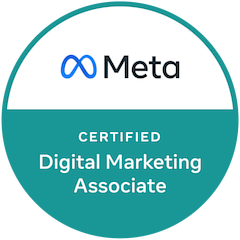When businesses search for an outsourced marketing solution, they typically find both full-service and specialized agencies, such as digital marketing agencies. Both options offer benefits and drawbacks, so before making a decision, consider the following factors.
What is a full-service marketing agency?
Full-service agencies tend to be larger and designed as an all-in-one marketing solution for businesses. They typically offer traditional and digital advertising, communications, social media, public relations, brand identity/management, content marketing, graphic design, web design, video production, and more. A large team is required to offer such a wide variety of services with excellence. Contracts often include a relatively high monthly retainer fee for a complete, integrated marketing solution.
Pros of full-service marketing:
- A one-stop-shop for all marketing needs
- Traditional advertising expertise – offline media, print, billboards, TV/radio
- Holistic, integrated approach
What is a digital marketing agency?
Digital marketing agencies are more specialized, focused primarily on websites, SEO (search engine optimization), PPC (pay-per-click) advertising, and email marketing / social media. Because fewer services are offered, digital marketing agencies are more cost-effective. They will have specialized technical expertise that may be difficult to find at a full-service agency. With fewer “moving parts” to coordinate, digital agencies can often be more agile and quickly adapt to new digital marketing trends.
Pros of digital marketing agencies:
- Specialized expertise in new technologies
- Can be more cost-effective
- More agile
What factors should I consider when choosing a marketing agency?
The choice of which type of marketing agency is right for your business depends on several factors:
- Business size and marketing budget – can you afford a full-service marketing retainer?
- In-house marketing team – do you already have many “full-service” skills in-house and need specialized digital expertise?
- Traditional advertising – do you need an agency to handle offline marketing?
- Target audience – does your target market connect with online, offline marketing, or both?
- Market share – what stage of growth is your company in? Do you already have considerable brand awareness or need to reach as many people as possible?




